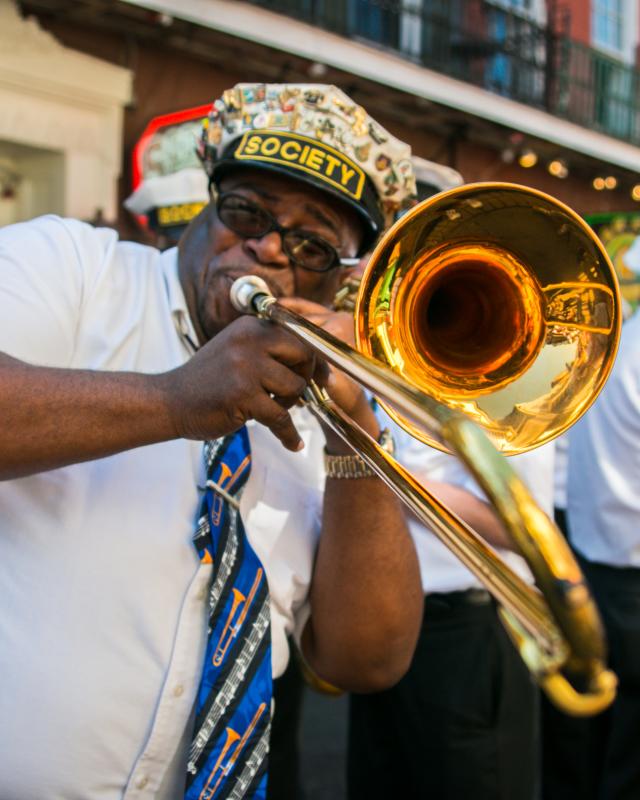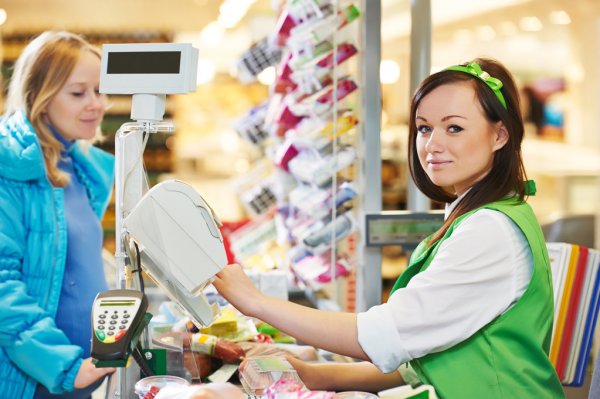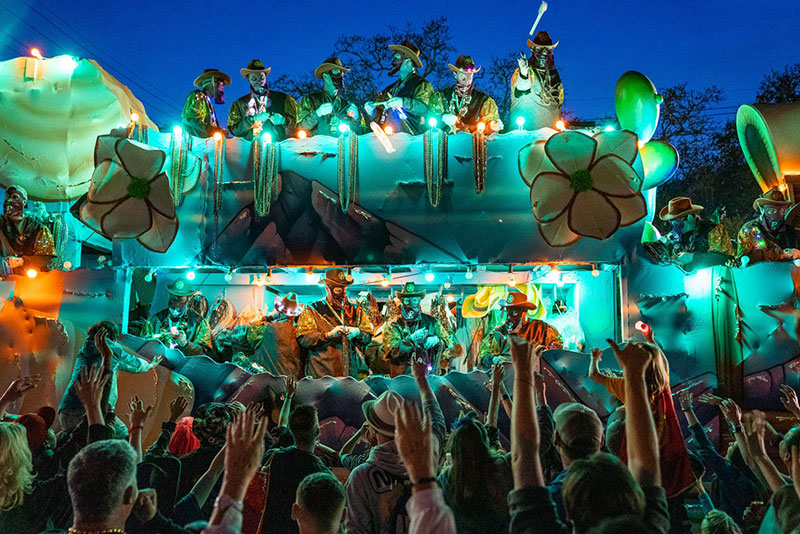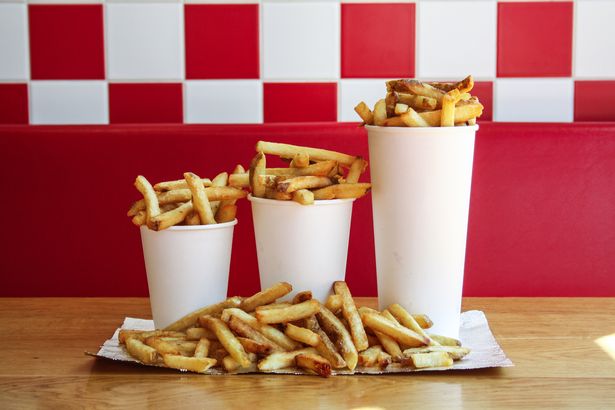In this article, I'll share a simple lesson I've learned for a lifetime through sunny Louisiana, famous for its cuisine, New Orleans jazz, Bourbon Street craziness (which, unlike New York, REALLY never sleeps) and Southern hospitality.

In yesterday's article, I tried to argue the problem of free trawls and explain why they are not suitable for most businesses.
Today, let's talk about something that is ideal for ANY business / application / service. But first, a little background:
Before moving to America, I had an interesting experience in organizing the work of my supermarket in Crimea. It was a great time full of exciting challenges and exciting successes.
Over the past few years, there have been many funny incidents and interesting discoveries that deserve a separate article. For example, once a Muscovite refused to pay “so little”, and in order to sell him a bottle of cognac, it had to increase its price by 10! time.
The work was quite successful, I was able to significantly increase sales figures, cut costs and test hundreds of ideas on pricing, product placement and loyalty. However, during all this time, I have not been able to get one simple, but insanely important thing from the cashiers: sincerely SMILE customers and be suave cuties.

At one time it even seemed to me that such cashiers only existed in stock photos. Hell, I even tried to pay cashiers extra for a smile, but their cold heart did not give in to the warmth of banknotes. And given the fact that in Crimea there has always been a huge tension with people who wanted to work (this is the specificity of resort regions, where everyone tries to rent out their apartment in season to get high for a year), I myself had to smile.
In the evenings, at peak times, I often sat down at the checkout to help cashiers cope with the flow of people. Each visitor received a standard set: Hello / Good afternoon + * sincere smile * + Thank you for your purchase, have a nice evening!
Often there was a situation when really cute, but slightly frostbitten girls-cashiers at the next checkout had 2-3 people in line, while I (far from the best model of beauty) had a crowd of 6+ people. When asked to move to a free cash register, people often replied something like: “No, we'd better stand with you. You are so sweet / smiling that the mood rises by itself. "
Perhaps at that time we were the only supermarket in Crimea, which had free bags, polite (but not very smiling) cashiers who at any time could help you carry the bags to the car, and sometimes a huge watermelon to the building of a nearby sanatorium. And these works brought great results. Our prices were far from the lowest, but when they found our supermarket, most of the customers came back again and again, completely ignoring all the competitors in the area.
My experience in retail has helped me internalize one key idea of Bob Farrell, which we will come back to in a few moments: Our business is not what we sell, it's who we serve .
Whether you are building applications, web services, teaching English, or selling fruit in the marketplace, the key focus should be on the CUSTOMER, not the product. Ultimately, we all work in PEOPLE business .
And despite the fact that this concept is by no means new, this approach is alien to most of our entrepreneurs. As a person who has worked for 10 years in marketing with a wide variety of companies, I have repeatedly heard phrases from clients like: “These bastards go to competitors all the time”, “They ask a thousand questions, but they don't buy anything”, “What kind of people are they? rogue ".
All of this is very sad, especially considering that this situation is extremely easy to fix.
But let's get back to Lagniappe
Lagniappe is a word introduced to Louisiana by Spanish colonists and has left a fairly large imprint on the local culture. It means "surprise little gift at the time of purchase."
So, buying food in the local market, the seller will accidentally report to you the chili peppers menu after weighing and announcing the price, in a local cafe the waiter will serve free crawfish etouffee (one of the reasons to come to Louisiana) to buy jambalaya (something like our pilaf, but for Louisiana style), and the clerk of the gift shop will add beads well-known all over the world to any purchase (beads are one of the symbols of Mardi Gras - a holiday that, according to legend, was influenced by the visit of the brother of the heir to the Russian throne to New Orleans).

Even in customer-centric America, this idea practically did not take root anywhere except Louisiana. The most striking example, perhaps, will be the so-called baker's dozen - buying a dozen (12) donuts anywhere in the United States, the client will always find there 13.
And of course Five Guys, which at one time collected a lot of hype thanks to the simplest but effective technique :
When collecting your order, a member of the Five guys team will first put a glass of fries you paid for in the food bag, and then immediately pour an even bigger "spoon" of potatoes on top - right into the bag.

And despite the fact that this technique is probably included in the cost price and calculated by marketers, it continues to delight regular customers. The American fast food market is insanely competitive, and if you can stand out favorably with this “trick,” it's foolish not to use it.
But what is the Lagniappe phenomenon? Why does he attract people?
In my article on habit formation, I referred to scientific research that confirms that our brains are much more responsive to "random" rewards than they are known to be. However, very few companies are using the potential of this discovery.
Imagine you are selling trendy men's socks and briefs. You have two options for the action:
- Buy panties, get socks as a gift
- After purchasing the panties, add a pack of free socks to the order
In the first case, you are working to increase the number of sales of cowards , in the second - to increase customer loyalty . At the same time, it doesn't matter at all whether you are selling panties, developing a web application, an online game or an online marketplace.
Small unexpected amenities can be absolutely in any business. Moreover, they do not have to be physical benefits, sometimes a smile and a good attitude are enough, such as an offer to bring a customer's watermelon to the building of a sanatorium. Although, it is worth noting that free packages (a practice that has been practiced in America for many years) had an incredible pleasant effect on our customers and it is not clear why supermarket chains in the CIS will not adopt this technique.
Although no, I'm lying again. In yesterday's article about free trawls, I mentioned my great pain - domestic companies do not pay attention to scientific research, and in most cases do not conduct their own. That is why my job as an economist is practically impossible in the post-Soviet space. And since there is no demand for economists, there is no one to tell the business owner how to put the cost of packages into the price of products ...
Lagniappe is not so much a gift as an ordinary sign of attention to its user / visitor / buyer, which often costs the company a mere penny. For example, for the past 5 years, I have regularly bought a variety of homemade products from Boxed.com, from pasta to toilet paper.
Before settling on Boxed, I tried several different services, but at a comparable price / quality, the guys from Boxed were the first to attach a postcard with my name and words of gratitude written by hand to my first order. An unexpected little thing that converted me from a passing customer to a regular customer.
And if among offline retailers and all kinds of restaurants you can sometimes stumble upon a similar example of "surprise", then in the online sphere it is adopted by a negligible number of companies. And in vain, because it has quite a lot of potential in the IT sphere.
The cost of virtual nice gifts is usually lower than offline counterparts. Nobody (except for the nasty marketer) bothers to give the user an additional free month after the first payment for the web service, and even more so, nothing prevents the player from adding a random gift when buying game currency in an online game. But for some reason, almost no one uses it.
And it really works. And the main advantage: this technique works not only for new, but also for old customers. After all, there is no limit to brand / product / service loyalty?
Most of our children continue their classes in the daily conversation clubafter a 3 month marathon. During classes, we become very close to the students, and if we do not become friends, then we certainly enter the circle of good acquaintances. Still, it's great to see the surprise guys find that we are doubling their access after the first call for a talk club. And it's even more enjoyable to receive rave reviews from a cool personalized postcard with an American stamp that reaches students after completing the main course.
It would seem, what is the need to do such things for clients who will still not go anywhere from you (3 months have already been engaged, why should they still double?)? But this approach is a win-win for both sides. He not only gives the client a fleeting but pleasant experience, but also reminds us that we do not work with English, but with people .
PS This is the idea Bob Farrell is trying to convey in his cult video "Give them a pickle". Be sure to take a look if you already know English well. And suddenly it is given to you with difficulty, come to Smart Start .